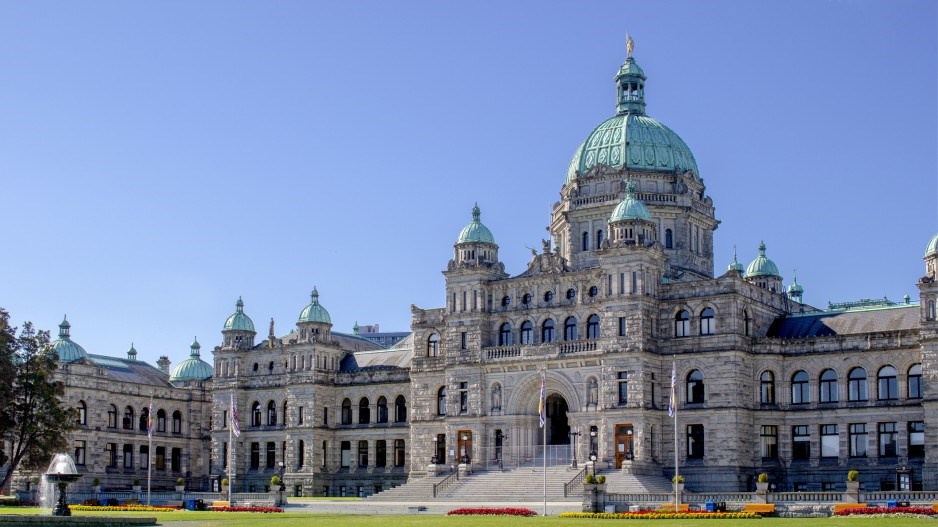Across British Columbia, communities are waiting.
They’re waiting for new housing developments that never break ground, for clean energy projects stuck in limbo, and for resource infrastructure that could power local economies — but is delayed by years of red tape. Indigenous nations are waiting too — many of them leading transformative partnerships that promise prosperity, only to find themselves trapped in a permitting system that no longer works.
Everyone agrees the current model is broken. Projects that meet high environmental standards and have deep community support still get lost in a tangle of outdated processes, duplicative oversight and slow-moving bureaucracy. Reform is urgently needed, but eight years of BC NDP government haven’t moved the economic development ball down the field.
Enter Bills 14 and 15: the BC NDP’s proposed solution to “streamline” infrastructure approvals and reduce permitting backlogs. On paper, these bills promise faster timelines and more predictable decision-making, things investors and companies looking to do business in B.C. desperately want to see.
In practice, though, they raise serious concerns about fairness, transparency and the province’s future.
The core issue lies in how these bills determine which projects get fast-tracked and which are left behind. Under the proposed legislation, cabinet has broad discretion to declare a project “provincially significant,” giving it priority in a system already overwhelmed with backlogged applications. But the criteria for this designation are vague — and notably, the bills exclude certain sectors altogether.
LNG, pipelines, and oil and gas infrastructure are explicitly left out of the expedited approval stream. These exclusions are not accidental. They reflect a policy decision to favour politically aligned projects while sidelining sectors that remain vital to B.C.’s economy, especially in the north.
This sends a troubling message to the communities that rely on these projects: your priorities aren’t the government’s priorities.
Resource development isn’t just about economics. It’s about sovereignty, sustainability and self-determination.
LNG projects like Cedar LNG and Ksi Lisims LNG are Indigenous-led and environmentally responsible. They create jobs, generate stable revenue and provide global environmental benefits by displacing higher-emission fuels abroad. They also require dozens — sometimes hundreds — of permits to move forward.
Yet under Bills 14 and 15, these projects remain trapped in the existing system, even as new, politically convenient ones jump to the front of the line. Ones backed by NDP-friendly lobbyists.
During committee debate on Bill 15, Infrastructure Minister Bowinn Ma admitted that “there are literally thousands and thousands of backlogged permits in government right now,” including more than 7,800 water permits. This is not just a bottleneck, it’s a breakdown. Instead of fixing the system for everyone, the government is creating a shortcut for some, while leaving others behind.
The consequences are real. For Indigenous leaders who have staked years of negotiation and planning on projects like Ksi Lisims and Cedar LNG, new uncertainty threatens investor confidence and community trust. Delays can cost millions. Missed windows can derail entire developments. And when governments pick winners and losers behind closed doors based on who sits on the other side of the negotiating table and not on the value provided to B.C.’s economy, they risk undermining both economic opportunity and public confidence in the permitting process.
British Columbia doesn’t need a system based on political preference. We need a permitting regime that is fair, accountable, and transparent — one that evaluates all projects based on merit, not ideology and political quid pro quo.
That means streamlining processes across the board. It means fixing backlogs at their source, supporting ministries and regulators with the capacity they need, and giving communities and proponents clarity about what’s expected. Above all, it means recognizing that infrastructure comes in many forms: housing and hospitals, yes, but also LNG terminals, transmission lines and the pipelines that make energy delivery possible.
If we truly want to build a resilient and prosperous future for British Columbia, we need to move beyond selective streamlining and toward a system that supports all sectors contributing to our shared success.
Let’s fix what’s broken, for everyone.
Kiel Giddens is the BC Conservative MLA for Prince George-Mackenzie. Larry Neufeld is the BC Conservative MLA for Peace River South.




